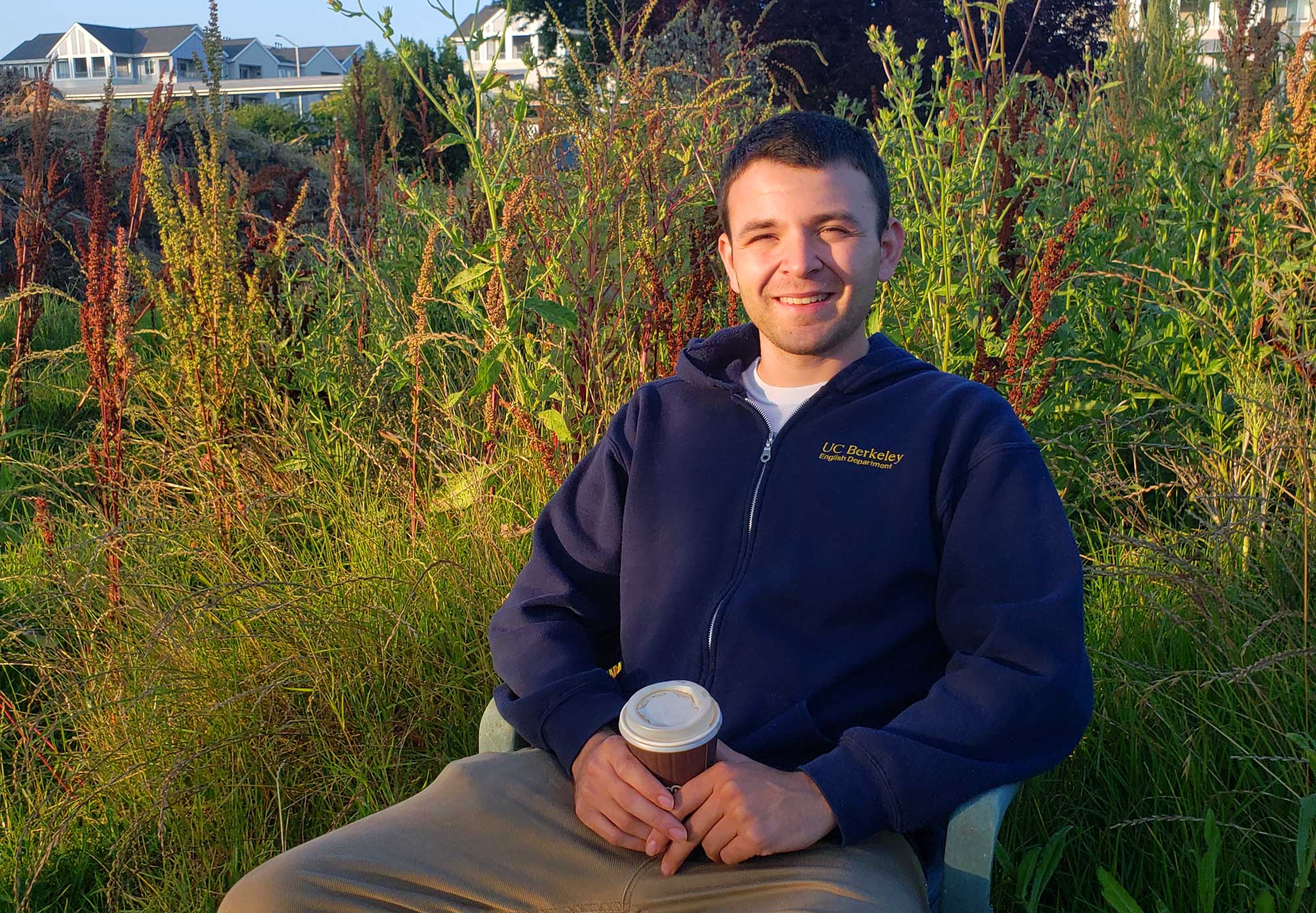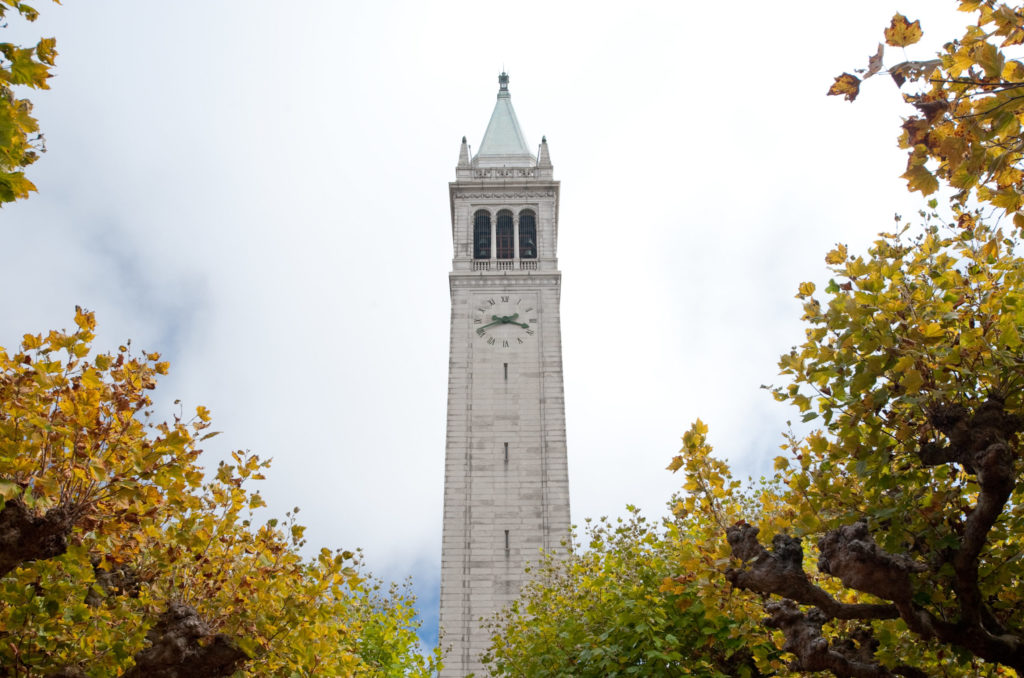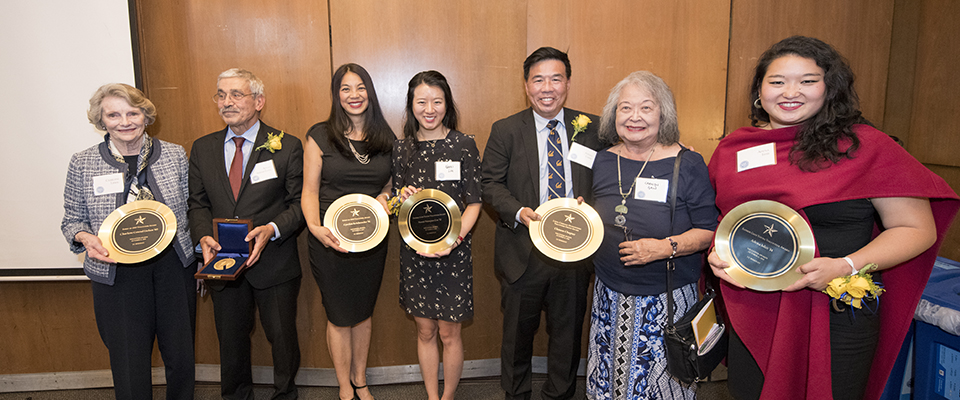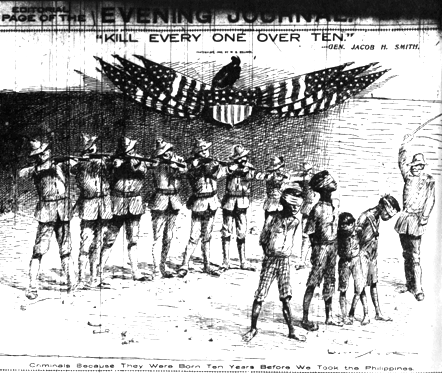In community college, Jason Bircea came across UC Berkeley’s English department website and was blown away by a student’s honors thesis on Kazuo Ishiguro’s novel Never Let Me Go.
“I decided I wanted to go to a school that would teach me how to write like that,” Bircea recalls.
Bircea transferred to UC Berkeley in 2015. Several years later, he chose Berkeley again to start his Ph.D. in English literature. Bircea experienced and contributed to different facets of Berkeley’s community through both Berkeley stints.
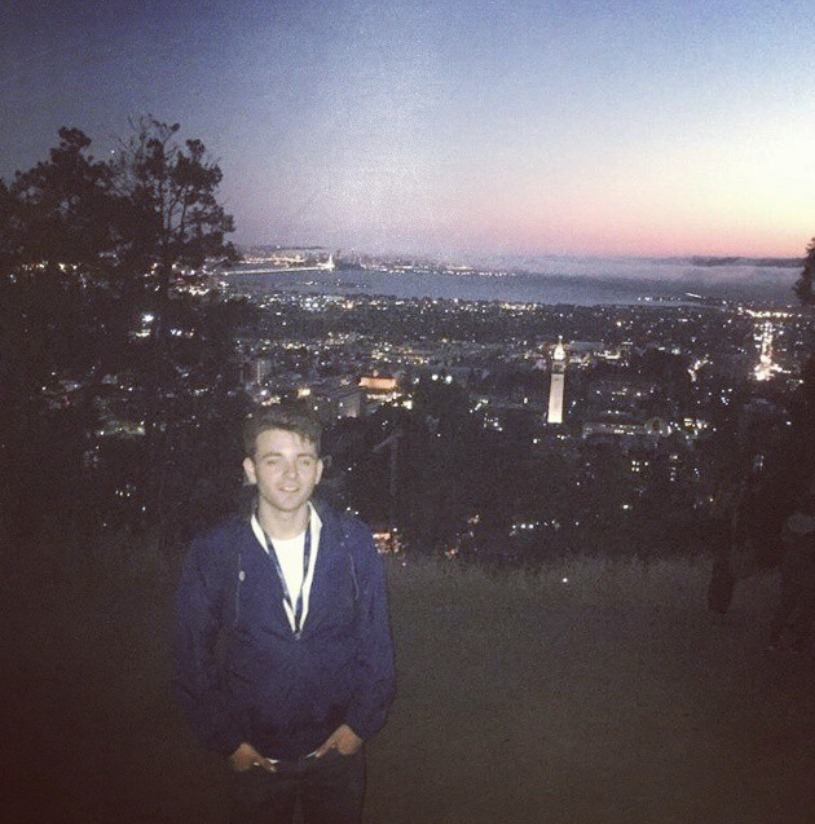
The first semester after transferring was rough as Bircea got acclimated to Berkeley’s rigor and uniqueness. “[Berkeley is] a world unto itself and a culture unto itself,” he says. Fortunately, Bircea found a community through the UC Berkeley English department. He befriended other English classmates and met his best friend, Miko Batino, in an English 45B class. Now-retired professor Georgina Kleege proved such an encouraging instructor that Bircea took three courses with her: Literature and Disability, a short fiction workshop, and a creative nonfiction workshop. Through the McNair Scholars Program, Bircea received mentorship from Professor Dorothy Hale and his first exposure to what a Ph.D. program entailed.
“No one in my family had ever gone to college before,” says Bircea. “[The McNair Scholars Program] gave me a sense of what it might mean to do research as a vocation.”
Bircea’s other Berkeley experiences ranged from studying all night in the Free Speech Cafe (“The coffee’s not the best”) to witnessing the 2017 protests against Milo Yiannopoulos’s planned visit. He frequented Fat Slice for their $3 pizza slice and various movie theaters on Shattuck to watch Inside Out and Black Panther. Bircea also worked on his own English honors thesis, about the English ballad “The Unquiet Grave,” under the guidance of Professor Celeste Langan.
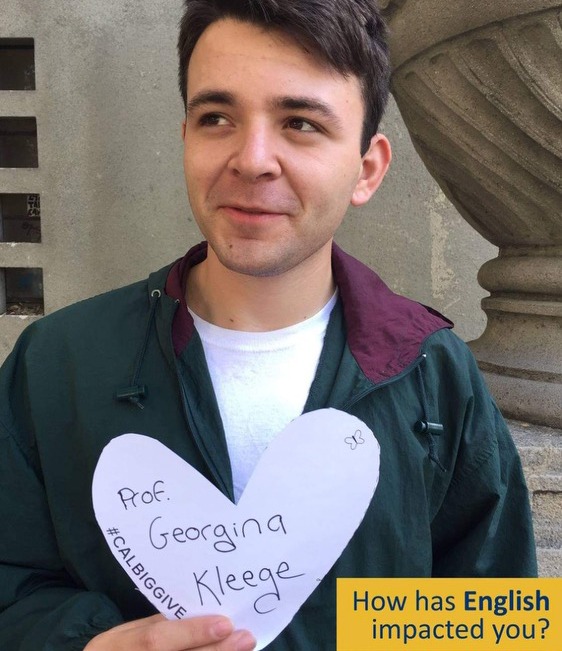
While Bircea immersed himself in the English department, he regrets not exploring more internships or career options at Berkeley. Post-college life had been an afterthought, and Bircea graduated without a clear game plan.
While experimenting with jobs, Bircea kept thinking about university life. As a transfer student, he’d only experienced two years at Cal; what would it be like to have more time at a university? Perhaps it was nostalgia, but he missed Berkeley’s space to think deeply and talk with others who also thought deeply. “Just the idea of returning to this intellectual community felt really exciting,” Bircea says. “I wanted to be part of a community again, a community of people who care about books, care about literature, care about the world.”
So, Bircea chose UC Berkeley a second time and returned in 2018 as a doctoral candidate in English.
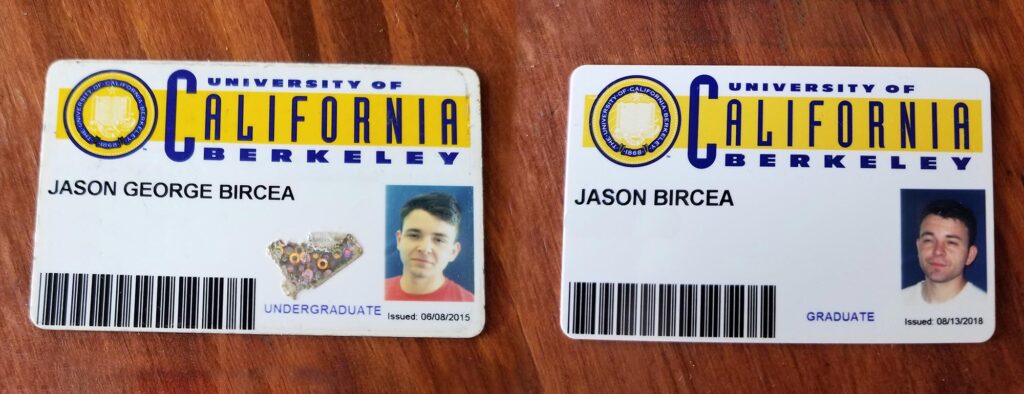
Returning to UC Berkeley as a graduate student showed him a different side of the community he’d loved as an undergrad. For one thing, Fat Slice, Bircea’s go-to pizza place, had closed. His favorite Shattuck movie theaters closed a few years later. In the English department, Bircea still enjoyed befriending classmates and deepening his existing friendships with professors. In his first year, though, he wrestled with insecurity. Many of Bircea’s Ph.D. peers came from Ivy League colleges or had professors for parents—backgrounds Bircea viewed as more elite than his own working-class one.
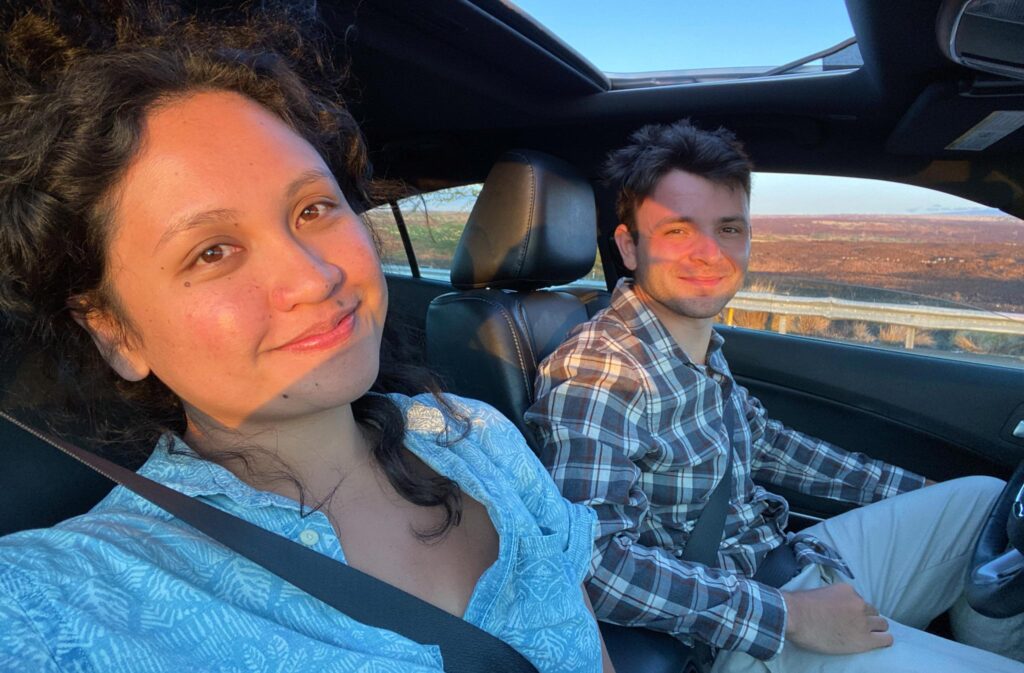
Bircea grew to see that this, too, was part of being in a diverse intellectual community. “You don’t need to have an analogous background to someone to connect with them,” says Bircea. “Even though [my classmates and I] have different life experiences, we all have this shared passion.”
Academically, the English Ph.D. program was a bonanza. Bircea could set his own schedule of teaching, research, or travel. The program gave him the time and resources to dig deeply into topics of interest.
Bircea also experienced an unexpected side of Berkeley’s intellectual community: In 2023, he joined the UC graduate student union strike to lobby for higher wages. “It’s not something that [you’d] have thought about when you applied to grad school,” he says.
The strike brought him in contact with an eclectic group of grad students outside of the English department. For Bircea, it also clarified his place at UC Berkeley. “What does it mean to be a grad student at a public university? Well, it means that part of your funding is coming by way of teaching undergraduates. That’s what your labor is.”
Teaching English composition has been satisfying, albeit with occasional bumps. In his first class, Bircea had his students write about eighteenth-century agricultural poetry. “The most boring stuff you can imagine,” admits Bircea. “Those students were troopers. The lesson [I learned]: teach something that eighteen to nineteen-year-olds will also find compelling.”
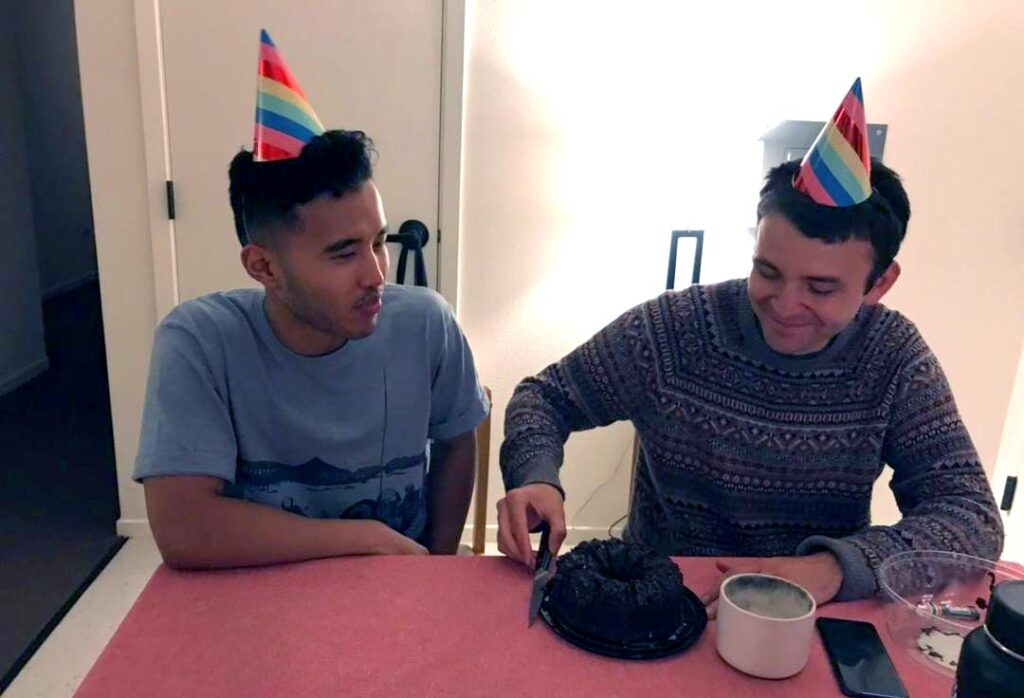
So, Bircea tried again, creating a course he didn’t get to take as an undergrad but would have wanted: a composition class focusing on working-class Chicanx literature. That semester, Bircea’s students read, discussed, and wrote about works like Helena Maria Viramontes’s Under the Feet of Jesus and Sandra Cisneros’s The House on Mango Street. Many students who signed up came from Latinx backgrounds, and Bircea enjoyed witnessing their invested interest in the material.
“It was just a really enjoyable experience,” says Bircea. “Sometimes Berkeley has this reputation for being left wing. But of course, students have all kinds of different points of view. The students really surprised me sometimes with their responses to the reading. They were a wonderful group of students.”
What’s your Berkeley story? Share it with us!










